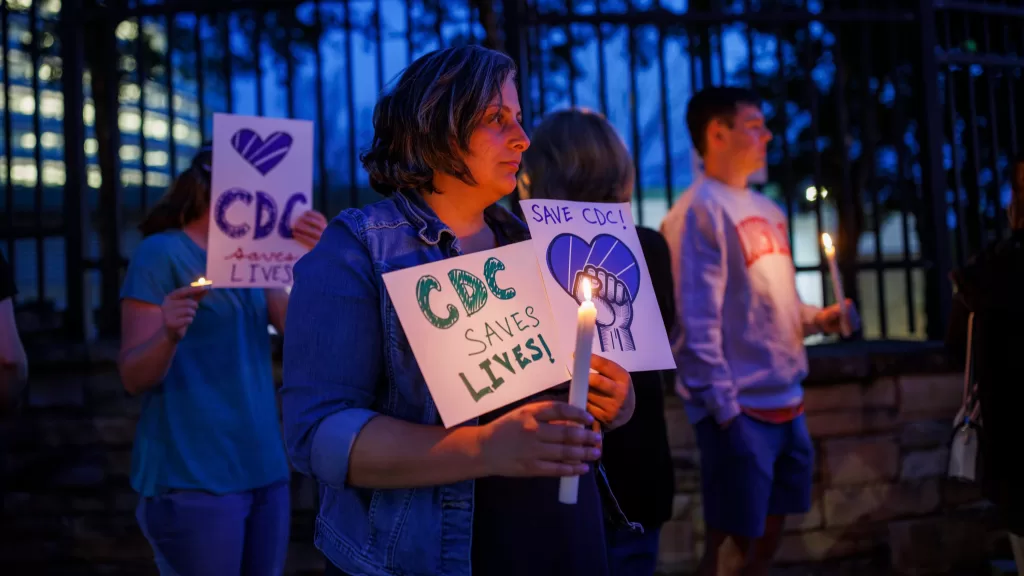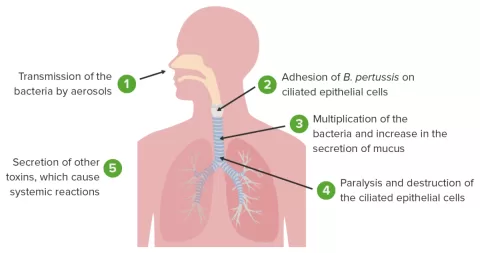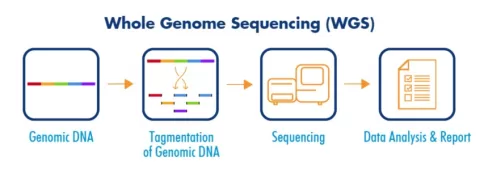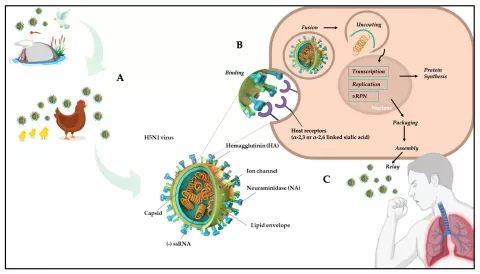The recent CDC cuts have sparked significant concern among public health experts, emphasizing the potential ramifications for America’s health infrastructure. With the ongoing COVID-19 pandemic and recent delays in vaccine approvals, these reductions threaten not only disease prevention initiatives but also the essential public health funding that underpins them. Health leaders from past administrations have raised alarms, asserting that the Department of Health and Human Services (HHS) budget cuts could jeopardize responses to health emergencies. They argue that without adequate support, agencies like the CDC could struggle to fulfill their critical roles in safeguarding community health. As the nation faces challenges from increasing infectious diseases, the implications of these cuts are far-reaching and demand urgent attention from policymakers.
The recent reductions affecting the Centers for Disease Control and Prevention (CDC) pose serious threats to the nation’s health landscape. Concerns have been raised regarding the overall impact of funding slashes within the Department of Health and Human Services (HHS), particularly in light of rising health crises and the need for timely vaccine approvals. Public health advocates are warning that these fiscal constraints could undermine essential programs dedicated to disease prevention and health promotion. As previous health administrations express their dismay over these trends, the urgency to discuss the restructuring and future of public health initiatives is more critical than ever. This call to action highlights the interconnectedness of federal funding and effective public health responses in the face of emerging threats.
The Impact of CDC Cuts on Public Health Funding
The recent cuts to the Centers for Disease Control and Prevention (CDC) have raised significant concerns among public health leaders regarding the future of disease prevention in the United States. Over 100 health experts have expressed alarm over the proposed reductions, emphasizing that these measures could undermine essential public health funding. With billions of dollars in contracts facing cuts, there’s a growing fear that vital resources aimed at combating outbreaks, preventing sexually transmitted infections, and overseeing vaccination programs will be severely curtailed.
In this climate, the CDC’s potential restructuring under the Department of Health and Human Services (HHS) has sparked debates about prioritizing public health funding amidst financial constraints. Many experts argue that these CDC cuts could lead to inefficiencies and delays in health responses, particularly in light of ongoing challenges like avian flu and measles outbreaks. The call for congressional oversight hearings indicates a consensus among leaders that safeguarding public health funding is crucial for maintaining effective disease control and prevention mechanisms.
Consequences of Delayed COVID-19 Vaccine Approval
The delay in the approval of Novavax’s COVID-19 vaccine has significant implications for both public health and the approval process of vaccines in general. As the FDA relies on additional data requested by former Trump administration officials, the pandemic response could suffer from unnecessary delays that hinder access to effective vaccine options. Health officials are concerned that this draw-out process may contribute to public skepticism regarding vaccine safety and efficacy during a critical time in vaccination efforts.
Moreover, with the growing threat of COVID-19 variants and other respiratory illnesses, timely vaccine approval is essential for public health readiness. The impact of potential HHS budget cuts on vaccine oversight raises questions about the sustained ability to respond to health crises, including outbreaks that could escalate if vaccination efforts are hampered. This situation underlines the importance of robust public health infrastructures funded adequately to ensure speedy vaccine approvals and maintain community health.
The Role of Oversight Hearings in Public Health Management
In response to alarm over CDC cuts, public health leaders are advocating for congressional oversight hearings to assess the impact of the Trump administration’s decisions on the nation’s health infrastructure. Many experts believe that transparency in decision-making processes will help re-establish trust in public health agencies like the CDC. By examining the restructuring proposals and their effects on disease prevention programs, lawmakers can better address gaps in public health funding and ensure resources are allocated effectively.
Furthermore, these hearings present an opportunity to reconnect with the core principles of public health advocacy, emphasizing evidence-based programs and the necessity of countering misinformation. Health leaders stress that protecting vaccination and preventative measures is essential to combat emerging health threats. Thus, oversight hearings could be pivotal in advocating for adequate resources that reinforce both the CDC’s mission and public health priorities.
Challenges Posed by HHS Budget Cuts
The reductions in the HHS budget have posed several pressing challenges for health agencies, particularly the CDC and FDA. With reports of closures of critical labs and advisory committees, public health officials are warning that the ripple effects may compromise the nation’s ability to respond effectively to health emergencies. As contract cuts hit vital disease control programs, experts express concern that the anticipated outcomes of these budget reductions will lead to a weakened public health response to outbreaks, including STI testing and management.
Furthermore, these budget cuts come at a time when health challenges continue to evolve. Diseases previously managed by the CDC’s interventions may resurge due to diminished operational capacities. Budgetary limitations could hinder urgent pandemic responses, delay critical vaccine rollouts, and contribute to adverse health outcomes across diverse populations. Advocacy around these challenges emphasizes the need for sustained and strategic health funding to ensure that public health systems remain operational and effective.
Reinforcing Public Health Infrastructure During Cuts
Amidst cuts to the CDC and HHS, there’s a critical need to reinforce America’s public health infrastructure. Health leaders emphasize the importance of maintaining comprehensive disease prevention efforts, especially during unprecedented health crises like the COVID-19 pandemic. By advocating for enhanced funding and resources, public health officials aim to ensure that health systems can respond effectively to emerging threats, including vaccine-preventable diseases and sexually transmitted infections.
Moreover, restoring public trust in health agencies is essential to garner support for necessary funding increases. This can be achieved through increased transparency in how budgetary decisions are made and prioritizing evidence-based health interventions. Improved communication strategies about ongoing health threats and vaccination efforts can also enhance public engagement, fostering a collaborative environment where funded programs can thrive despite fiscal challenges.
The Necessity for Strengthened Vaccination Efforts
As public health agencies face potential cuts, strengthening vaccination efforts emerges as a critical focus for maintaining community health. The CDC cuts could lead to reduced capacity for outreach and education on vaccine safety, ultimately resulting in decreased vaccination rates. Experts warn that misinformation circulating about vaccines can be exacerbated by reduced public health campaigns, highlighting the urgent need for reinforced efforts in promoting vaccinations, especially for COVID-19 and childhood immunizations.
In response to these challenges, health advocacy groups are rallying to enhance vaccination initiatives. Mobilizing community resources and increasing funding for vaccination education can play crucial roles in sustaining public health advancements despite systemic cuts. By prioritizing immunization strategies and countering misleading narratives, health officials can work towards reversing trends that threaten public health outcomes across the nation.
Addressing Misinformation in Public Health
The rise of misinformation in public health poses serious challenges for effective disease prevention strategies. During budget cuts and structural changes within agencies like the CDC, misinformation can proliferate more easily, leading to public distrust and skepticism about essential health measures such as vaccination campaigns. Combating misinformation requires concerted efforts from public health authorities to create accurate, accessible, and engaging content that educates and informs the public.
Furthermore, public health leaders advocate for community-based educational initiatives that empower individuals to understand health information critically. This includes training local health workers to engage effectively with their communities and address concerns surrounding vaccine safety and efficacy. By actively combating misinformation, public health agencies can strengthen community backlinks and foster a more informed public, which is vital during challenging times marked by budget cuts and public health restructuring.
The Future of Disease Prevention amid Budget Constraints
The future of disease prevention is at a critical juncture as public health funding faces significant constraints. Budget cuts to the CDC and HHS threaten the very fabric of health programs designed to protect communities. Without adequate funding and support, the nation risks falling short in its ability to manage disease outbreaks efficiently and safeguard public health interests. Health professionals emphasize the urgent need for strategic investments that prioritize preventative measures and research.
Additionally, as new health challenges emerge, including zoonotic diseases and antibiotic resistance, comprehensive disease prevention strategies will be essential. To address these challenges, collaboration between public health authorities and governmental funding agencies is imperative to identify and allocate necessary resources effectively. Ensuring a focused approach towards public health funding can pave the way for resilience in tackling future health crises.
Advocating for Comprehensive Public Health Policies
The advocacy for comprehensive public health policies has taken center stage amidst budget cuts that jeopardize essential services. Leaders from various health organizations are working to highlight the need for robust policies that can withstand fiscal limitations while ensuring that essential health programs remain intact. This advocacy is crucial for maintaining a strong public health infrastructure capable of responding to emergencies and preventing diseases.
Moreover, fostering partnerships between public health agencies and community organizations can enhance the effectiveness of public health policies. Engaging different stakeholders in dialogue about funding priorities can lead to innovative solutions that support public health initiatives, even in an economically constrained environment. Advocating for comprehensive policies that prioritize community health can be a powerful mechanism for confronting both current and future public health challenges.
Frequently Asked Questions
What are the potential impacts of CDC cuts on public health funding?
CDC cuts threaten to undermine public health funding by reducing allocations to critical programs, including disease prevention initiatives. These cuts may lead to delays in vaccine approvals and the closure of essential laboratories, significantly affecting the nation’s ability to respond promptly to health emergencies.
How do CDC cuts affect COVID-19 vaccine approval processes?
CDC cuts may exacerbate delays in COVID-19 vaccine approval processes. For instance, the recent intervention by FDA officials following HHS budget cuts highlights the challenges faced in ensuring timely evaluations, which are crucial for maintaining public confidence in vaccination efforts against COVID-19.
What changes are expected from the CDC restructuring due to budget cuts?
The CDC restructuring driven by budget cuts is anticipated to shift key responsibilities to a new ‘Administration for a Healthy America.’ This restructuring could compromise the agency’s capacity to effectively manage public health crises and may delay critical disease prevention activities.
Why are health leaders concerned about HHS budget cuts impacting the CDC?
Health leaders express concerns that HHS budget cuts will severely impact the CDC’s ability to manage outbreak responses and public health programs. These cuts are expected to disrupt disease prevention initiatives and have long-term consequences for national health security.
What specific disease prevention programs could be impacted by the CDC cuts?
CDC cuts may impact various disease prevention programs, particularly those concerning sexually transmitted infections and chronic disease management. The closure of relevant CDC labs and reduction in staff managing vaccine advisory committees could hinder outbreak response and health education efforts.
How are public health leaders responding to the current CDC cuts?
Public health leaders are actively urging Congress to halt the CDC cuts and conduct oversight hearings. They are advocating for the reinstatement of essential public health funding and emphasizing the need to safeguard evidence-based health programs critical for disease prevention.
What role does public health funding play in COVID-19 vaccination efforts amid CDC cuts?
Public health funding is essential for effective COVID-19 vaccination efforts. CDC cuts threaten to undermine vaccination programs by delaying approvals for vaccines and reducing resources for outreach and information campaigns that are crucial for countering misinformation.
| Key Points | Details |
|---|---|
| Health Leaders’ Response | More than 100 public health leaders have urged Congress to halt CDC cuts. |
| Impact of CDC Cuts | Cuts have led to delayed vaccine approvals, closure of labs, and disruption of outbreak responses. |
| Letter Organization | The letter was coordinated by For Our Health, part of the American Public Health Association. |
| CDC Restructuring Concerns | Health leaders are worried that HHS’s plan to cut 10,000 positions will compromise health emergency responses. |
| Oversight Requests | Congress is being asked to hold hearings and restore funding for crucial public health programs. |
| Vaccine Approval Delays | FDA has delayed full approval of Novavax’s COVID-19 vaccine due to a request for additional data. |
Summary
CDC cuts pose a significant risk to America’s public health infrastructure as over 100 health leaders urge Congress to intervene. The proposed cuts jeopardize crucial programs, impede timely vaccine approvals, and compromise outbreak response efforts, highlighting the urgent need for oversight and reinstated funding to ensure the nation’s health security.
The content provided on this blog (e.g., symptom descriptions, health tips, or general advice) is for informational purposes only and is not a substitute for professional medical advice, diagnosis, or treatment. Always seek the guidance of your physician or other qualified healthcare provider with any questions you may have regarding a medical condition. Never disregard professional medical advice or delay seeking it because of something you have read on this website. If you believe you may have a medical emergency, call your doctor or emergency services immediately. Reliance on any information provided by this blog is solely at your own risk.








